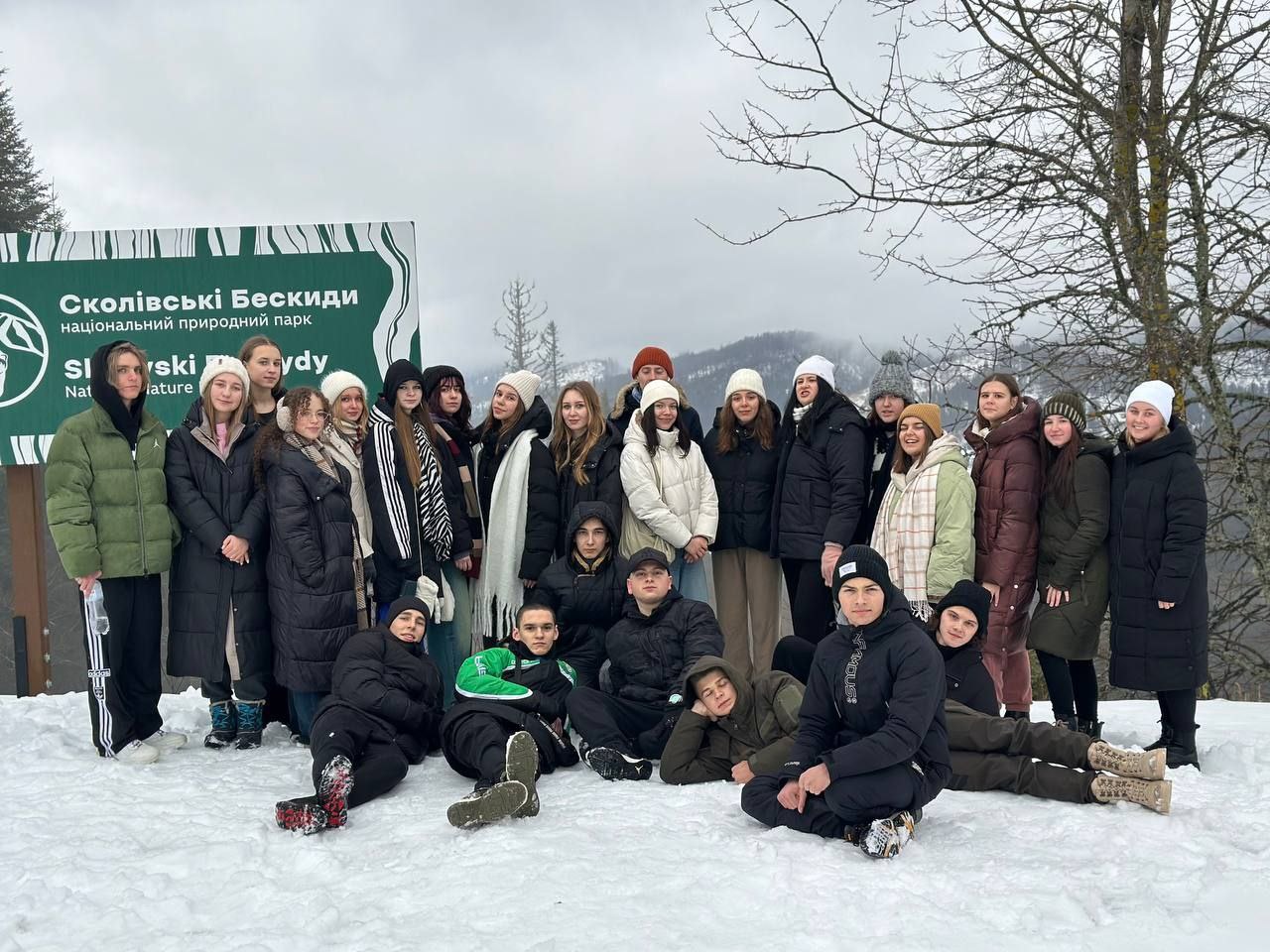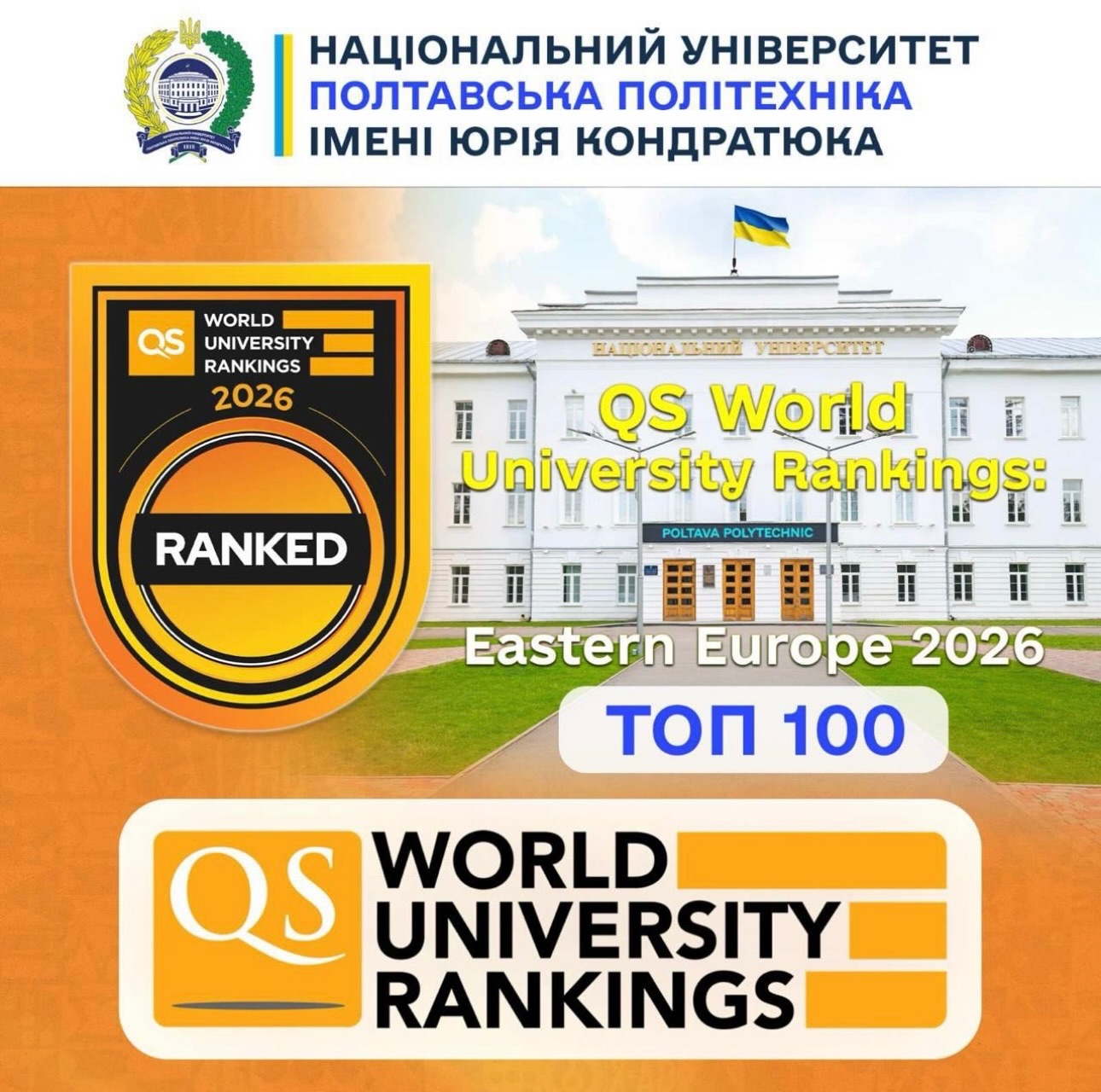From 15 to 22 December, 2024, five students of Faculty of Philology, Psychology and Pedagogy of National University “Yuri Kondratyuk Poltava Polytechnic” Olha Kushnirova, Kateryna Pedynich, Daria Katrenko, Anzhela Velychko, Olesia Suzdaltseva studied German in depth as part of the International Language Project “Sprachakademie 2024” (“Language Academy 2024”) in the Carpathians.
The future philologists were able not only to study with high quality, but also to relax, feel united with nature, which is especially charming at this time of year. The project was implemented at the initiative of the Council of Germans in Ukraine with the financial support of the Federal Ministry of the Interior and Integrated Territorial Development of Germany through the “Development Society” charitable foundation.
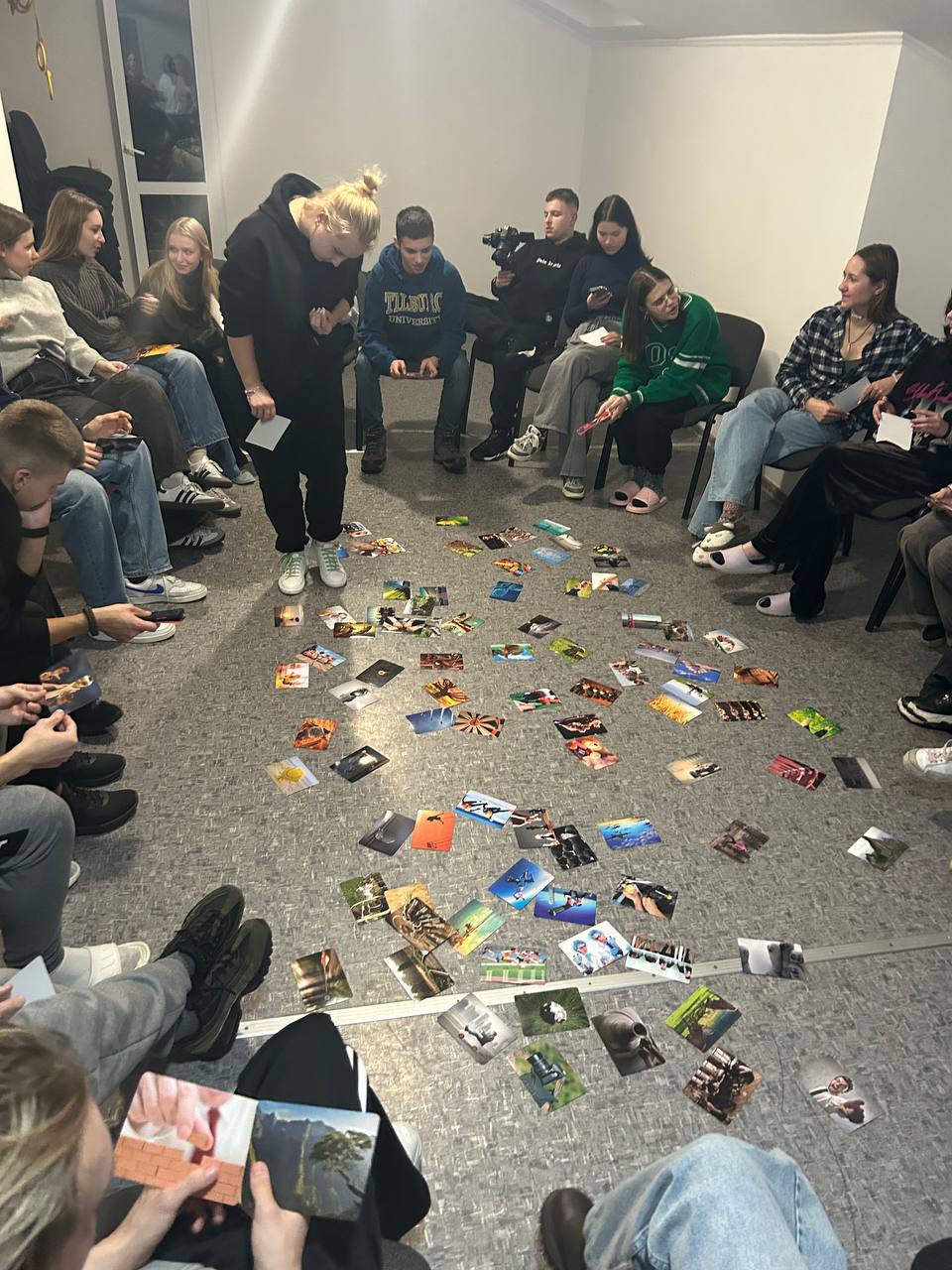
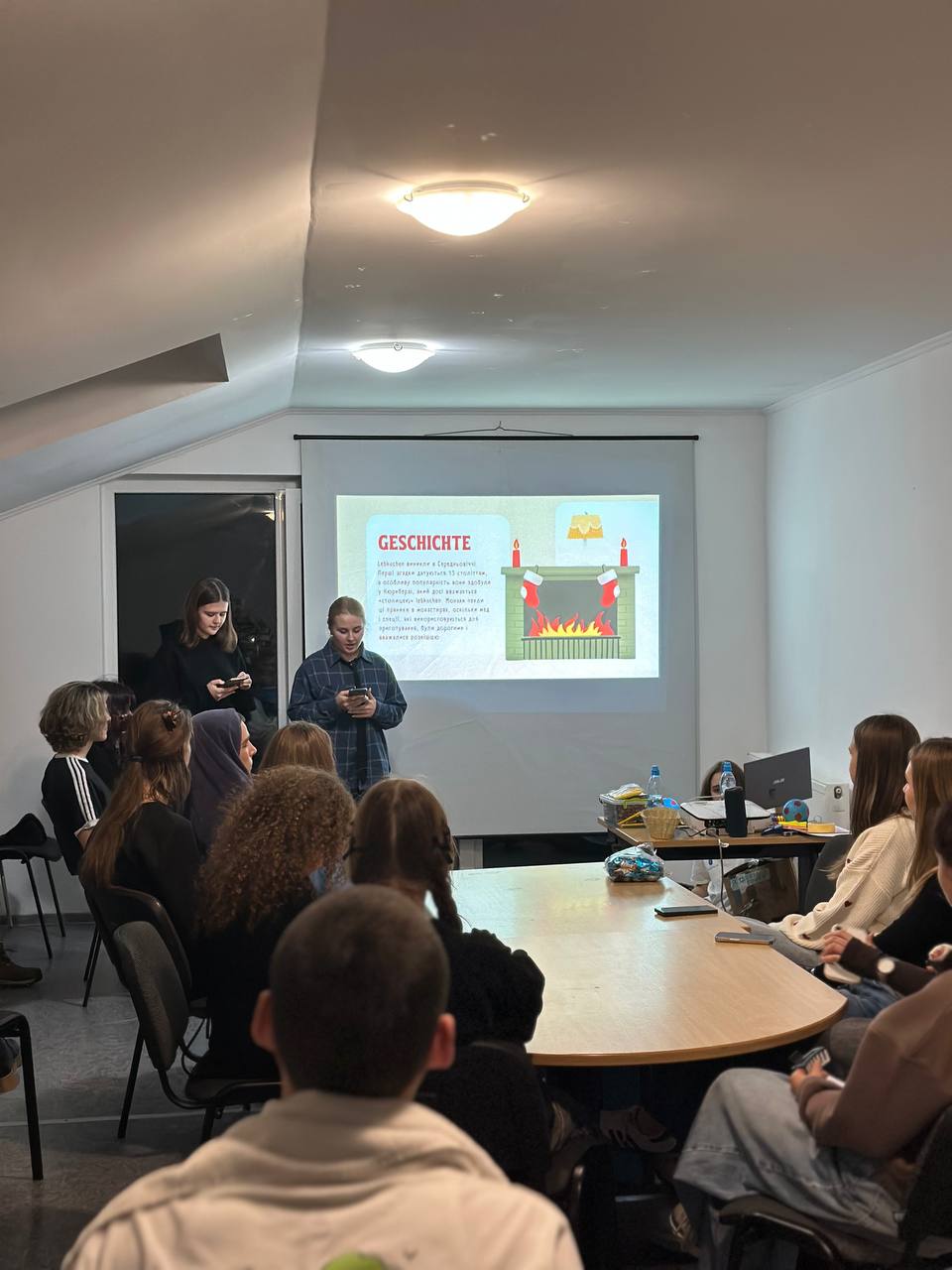

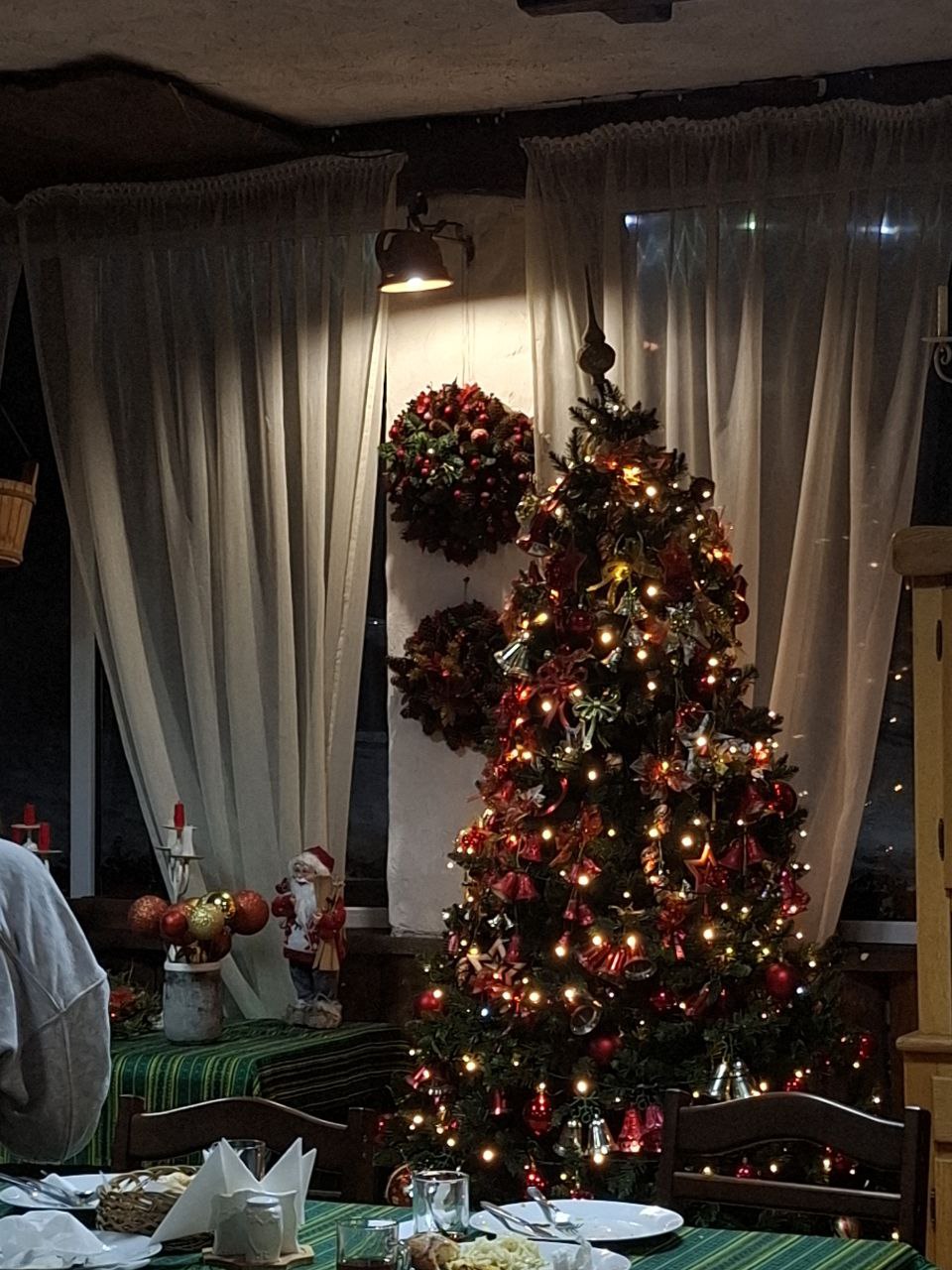
Second-year students Anzhela Velychko and Olesia Suzdaltseva share their impressions of the project: “We have previously participated in a similar project, “Deutsch mit wander”. Back then, we were in group A1, attended all the classes and passed the final test with flying colours, so this time we wanted to get into group A2 to deepen our knowledge. At the beginning of the project, we had an interview to determine our language level, and this time we were placed in the A2 group.
Since DJU Sprachakademie 2024 is more focused on learning German, the classes were more intensive. Every day we studied for 4.5 hours (3 hours of classes and 1.5 hours of language club). We had already studied German before, but we lacked the confidence to use the language, so Ivan, our teacher for this period, focused on getting us to speak more. At the language club, we played games, explained things and discussed them in German, watched TV shows, interviews, sang songs, and held discussions. In the classroom, we learned new words and structures, wrote stories using new vocabulary, did exercises, etc. We took a crash course on basic topics: me and my family, hobbies, sports, travel, the environment, holidays and traditions in Germany.
In addition to studying, we also took part in various team activities, both outdoors and indoors (quizzes, dances (Belgian, shuttle), discussions of metaphorical cards, team games, quests, etc.) Besides, we sang carols together, went hiking, took a lot of group photos, prepared presentations on various topics, as well as a theatrical performance called “Weihnachtsmärchen” (Christmas fairy tale).
“The highlight of the project was playing “Secret Santa” as DJU Sprachakademie 2024 takes place during the New Year period. Before the project, we had to buy a gift without knowing for whom we would be a secret Santa. And at the end of the project, with the help of other participants, we handed them over. A separate fond memory is the Christmas decorating workshops: in the first part of the project, we created a gingerbread tree, and in the second part, we made Adventskranz. This is a German tradition where 4 candles are attached to a wreath, each of which is lit in a specific week of Advent (4 weeks before Christmas). It was an incredible experience!
In general, the DJU Sprachakademie 2024 project gave us an incredible experience. We met and made friends with many people, learned more about German customs and traditions, improved our language skills, and just had an incredible time.”

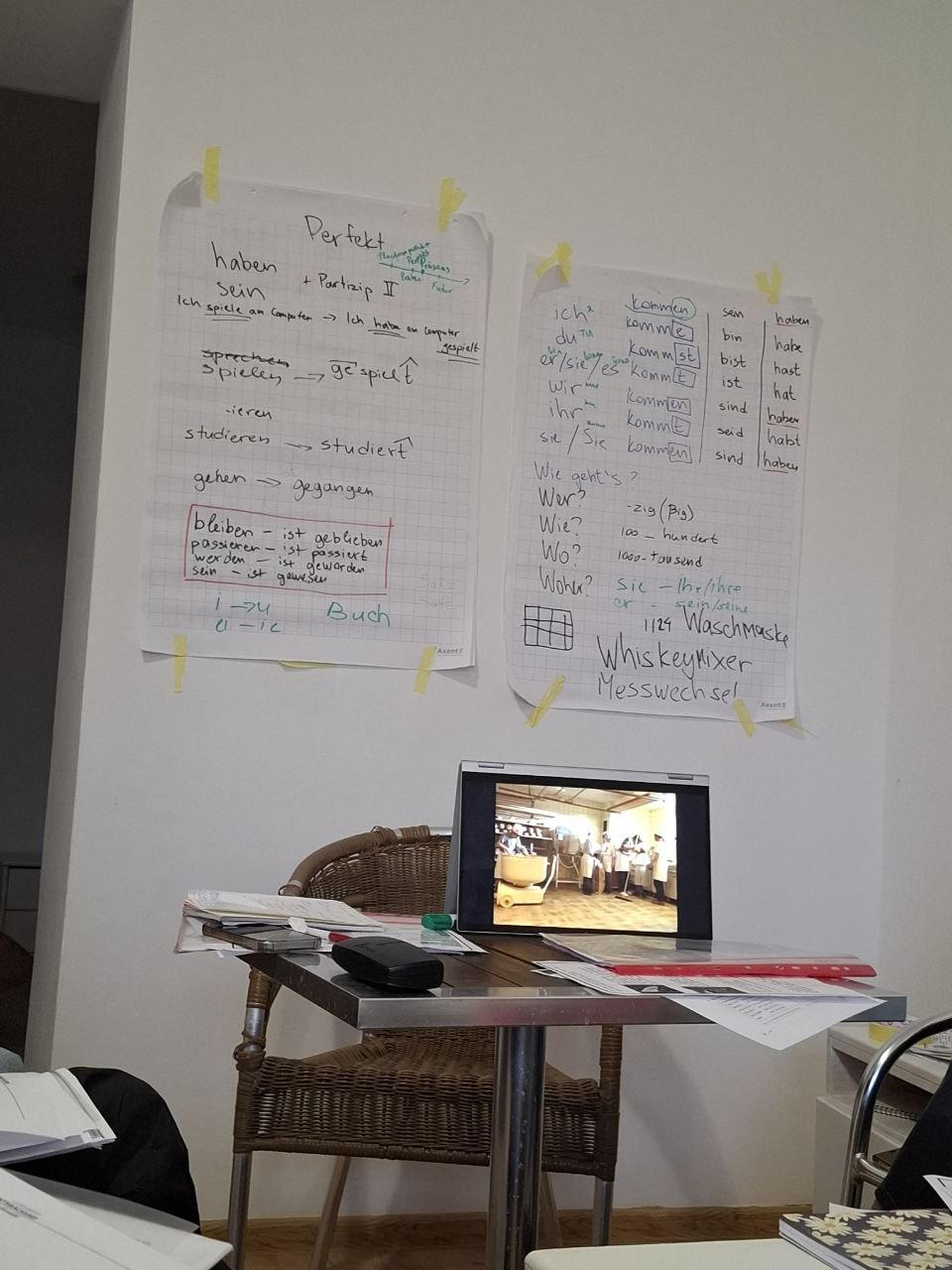

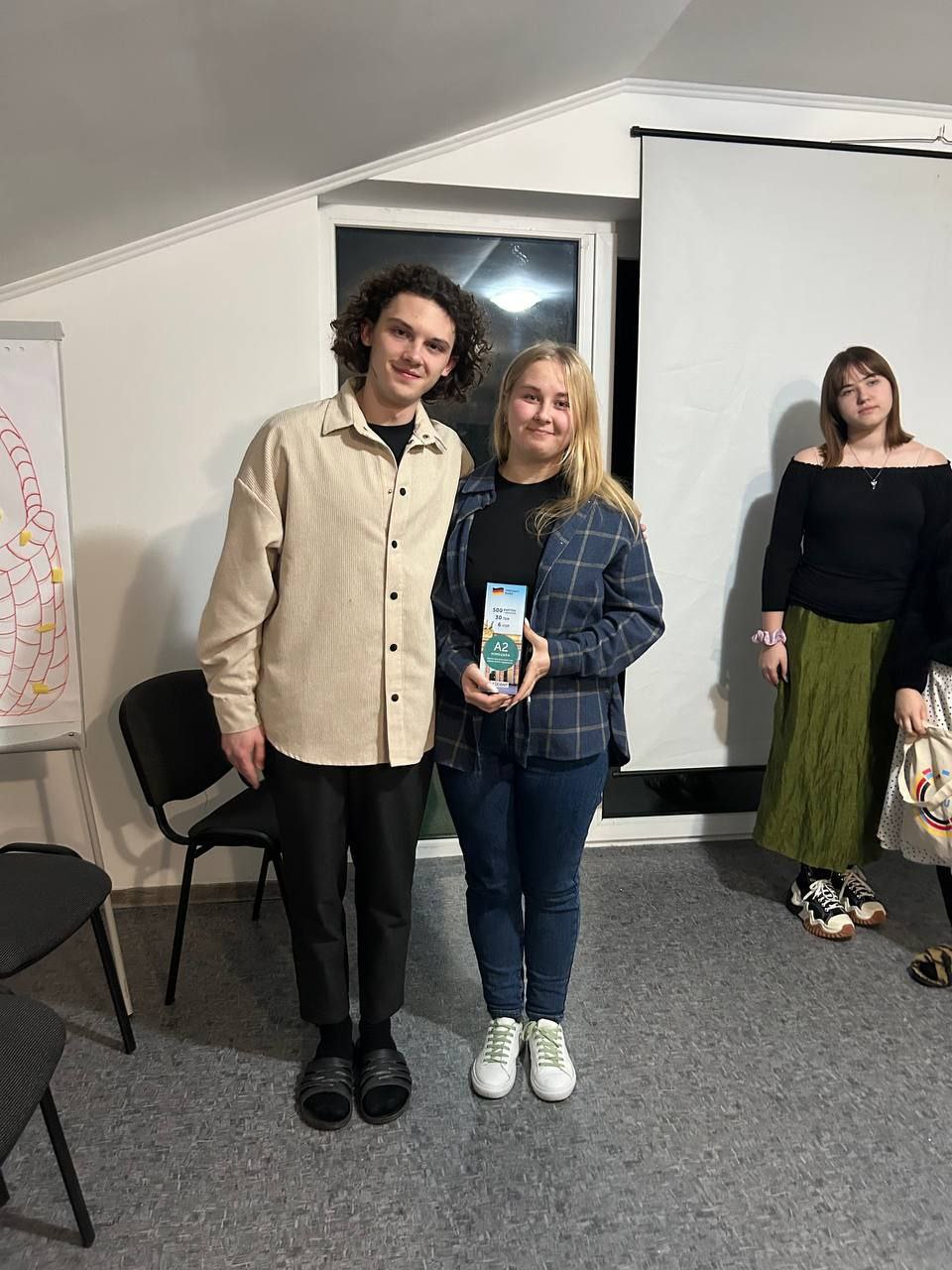
A 301-FF group student Daria Katrenko shared her impressions of the project: “The trip to this project was an incredible opportunity for me to break away from everyday problems and get unforgettable emotions. The events aimed at building team unity and team building activities were very exciting. Each of them was aimed at establishing a strong bond between the participants and learning a lot about each other. As the project took place during the festive season, there were also many themed sessions dedicated to Christmas and the observance of German Christmas traditions (such as making Adventkranz and painting the traditional German Lebkuchen). For 4.5 hours every day, the project participants studied German and discussed the peculiarities of German culture, which I was incredibly happy about. This project gave me unforgettable emotions and motivation to learn German even more thoroughly.”
According to a 301-FF group student Kateryna Pedynich, this project in the Carpathians helped her improve her German language skills and make new friends. “Interesting forms and methods of learning German made it possible to systematise the knowledge we had already acquired and learn new material on interesting topics. Themed quests, team building, hiking, outdoor games – every day brings new experiences. Unfortunately, everything comes to an end, but the pleasant memories in the photos and the knowledge gained remain,” – said the participant.
A 101-FF group student Olha Kushnirova also shared her impressions of the project: “This year's project was special for me as I took part in it not as a participant but as a teacher. This was preceded by a thorough work on studying various methods of teaching German, taking advanced training from the Wiederstahl and WIZ-Ukraine, obtaining a language certificate from the Goethe-Institut (level B2), participating in various international projects on learning German, etc. I worked with young people of A1 level, which involved the use of a large amount of game material to get participants of this level interested in learning German. It was incredibly hard, but also extremely interesting!”
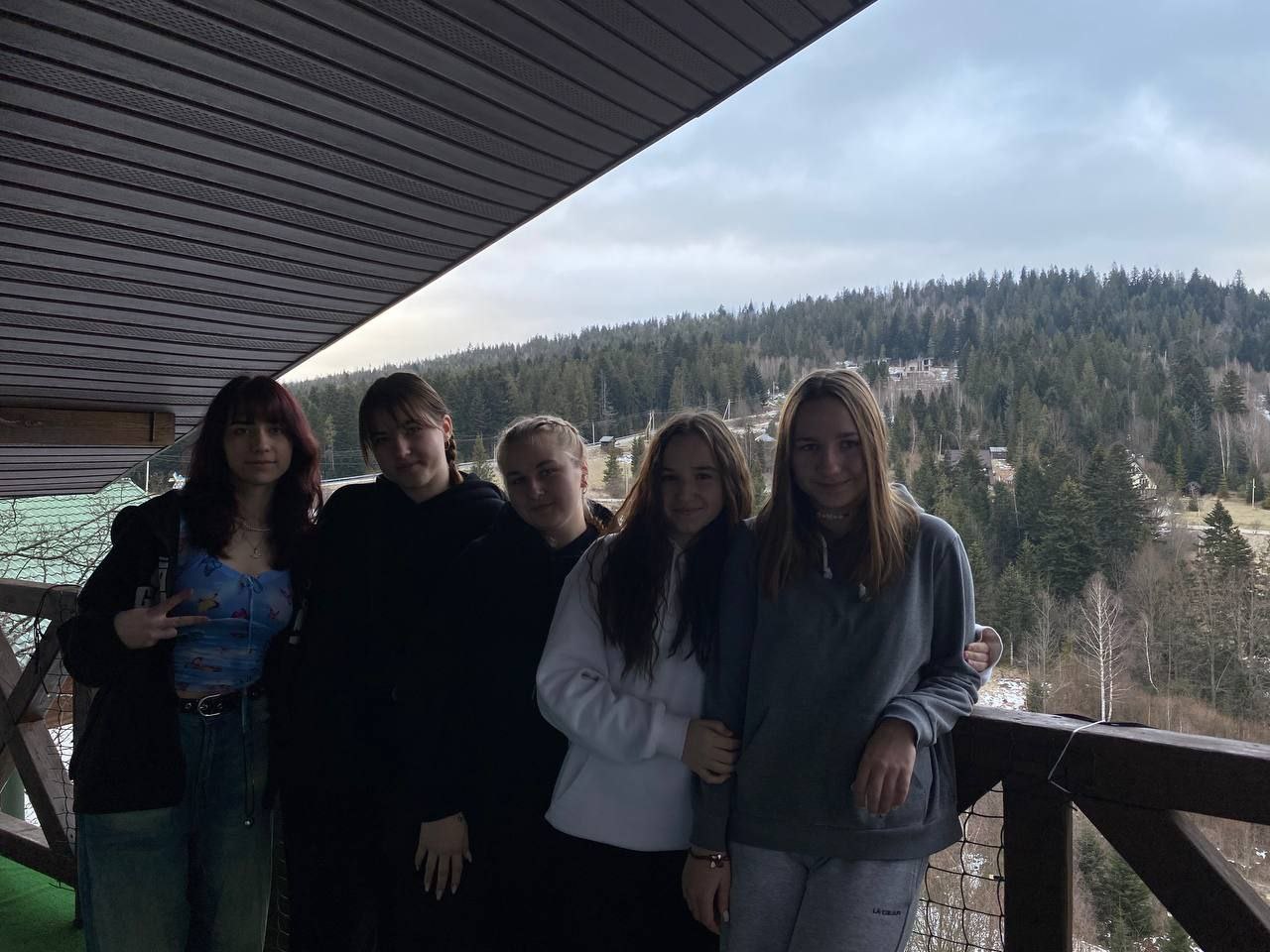
Professor of Department of Germanic Philology and Translation of Poltava Polytechnic, Doctor of Philology Tetiana Kushnirova notes: “Projects like this become an additional incentive to learn foreign languages, in particular German, since teachers use the latest teaching methods that comprehensively encourage students to improve their language level. A nice “bonus” is the activities that encourage communication between young people from different parts of Ukraine and the incredible nature of the Carpathians, which helps to improve the mental health of the participants.”
The academic staff and students of Faculty of Philology, Psychology and Pedagogy of Poltava Polytechnic express their sincere gratitude to the stakeholders, in particular to the NGO “Poltava Society of Germans Wiedergeburt”, for the constant support and the opportunity to improve themselves, and invite them to further cooperation.
Recently, a scientist of Polytechnic took part in a meeting of the Eurodoc Council in Zurich.
Media Center of
National University “Yuri Kondratyuk Poltava Polytechnic”
